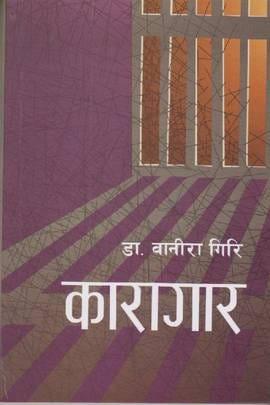
Nepal’s Literary Treasures: 5 Captivating Reads!
🎧 Visit Substack to listen to the audio version of this article 🎧
In this article, I’m presenting 5 captivating reads from Nepal: Chuli by Sarubhakta, Basain by Lil B. Chhetri, Karagar by Banira Giri, Sumnima by BP Koirala, and Kathmandu Days by Chandra K. Bhatt.
Chuli “The Peak” by Sarubhakta

In Sarubhakta’s Chuli, echoes of Hemingway’s mastery resonate. Naturalism binds the narrative, shaping destinies with the force of geography, environment, and culture. Here, mountaineers embody struggle, courage, and resolve amidst perilous peaks. Sarubhakta, synonymous with literary brilliance, crafts a saga of human triumph and tribulation. Born Bhakta Raj Shrestha, his legacy ignites hearts, shaping Nepal’s literary landscape. Amidst Everest’s icy embrace, the climber’s ascent marks triumph over adversity. Yet, descent reveals a greater challenge, a poignant metaphor for life’s journey. Amidst nature’s fury, tragedy strikes, reminding us that success and failure walk a perilous line. Chuli stands tall, a testament to the indomitable human spirit against nature’s relentless fury.
“Life's journey is a relentless march towards our goals. Those who pause for shortcuts and comforts risk getting lost along the way, no matter how far they've come.”—Sarubhakta, CHULI
Basain “The Migration” by Lil Bahadur Chhetri

In Lil Bahadur Chettri’s acclaimed Nepali novel Basain, the rural landscape of far-eastern Nepal serves as the canvas for a poignant portrayal of village life’s harsh realities. Dhane, the embodiment of the oppressed, grapples with the feudal yoke, struggling to eke out a living from others’ lands. Chettri, an Indian luminary in Nepali literature, exposes societal inequities through Dhane’s narrative, shedding light on the plight of the marginalized. Through Dhan Bahadur Basnet’s journey, readers witness the relentless cycle of exploitation and deception, underscoring themes of caste, gender discrimination, and poverty. Basain echoes the cries of the oppressed, a powerful testament to resilience amidst adversity.
“I question whether the life of the poor and oppressed is any better than that of animals! . . . Is this notion of luck merely penned by destiny?”—Lil Bahadur Chhetri, BASAIN
Karagar “The Prison” by Banira Giri

In Banira Giri’s poignant novel Karagar, the narrative unfolds in flashback, shrouding its characters in anonymity. Set in Kathmandu’s, the capital of Nepal, the protagonist, an unmarried woman in her forties, grapples with the constraints of a patriarchal society. Through the lens of the unnamed female, or “Hewa,” Author Giri confronts the harsh realities of women’s plight in a male-dominated world. This groundbreaking work delves into taboo subjects like extramarital affairs, offering a searing portrayal of love and longing. As a close confidante of acclaimed writer Parijat, Giri’s exploration of female agency resonates powerfully, marking Karagar as a seminal contribution to Nepalese literature.
“As my fragile dreams faded, desires crumbled, leaving me feeling like a featureless bird stripped bare, with 'spinster' tacked onto my name.” —Banira Giri, KARAGAR
Kathmandu Days: The Blight and the Plight by Chandra K. Bhatt

Dive into the turbulent tale of Nepal’s civil war in Kathmandu Days: The Blight and the Plight by Chandra K. Bhatt. Amidst the clash between monarchy and Maoist rebels, the mysterious assassination of the Nepalese Royal Family sends shockwaves through the nation. Delve into the web of political intrigue, where truth is elusive, and conspiracy lurks in every shadow. Follow Nawin’s journey, torn between duty and personal ambition, as he navigates the upheaval of Nepalese society. Against a backdrop of corruption and cultural upheaval, experience the resilience of the human spirit in a gripping narrative spanning generations. Ideal for those intrigued by real-life political mysteries.
“He was a Nepali citizen during a time when the currency of India and Nepal was considered equal and silver coins with the impression of Queen Victoria were in circulation.”—Chandra K. Bhatt, KATHMANDU DAYS
Sumnima by BP Koirala

B. P. Koirala’s Sumnima revolutionizes Nepali literature with its exploration of sexual psychology. As a political firebrand and literary luminary, Koirala’s oeuvre includes groundbreaking works like Modi Aaina and Teen Ghumti. Set against the backdrop of Nepal’s social hierarchy, Sumnima unravels the love between Somdutta, a devout Brahmin, and Sumnima, a Kirati girl embracing natural living. Their forbidden love challenges societal norms, exposing the shackles of religious dogma. Through Somdutta’s introspection, Koirala critiques the divisive nature of caste and class. Sumnima poignantly illustrates how suppression of human desires leads to spiritual emptiness, echoing Koirala’s quest for true liberation beyond societal constraints.
"Among all religions, none surpasses the greatness of non-violence. It stands as the supreme faith, universal and eternal, embraced by all of humanity."—BP Koirala, SUMNIMA

